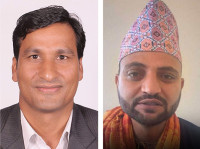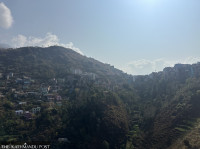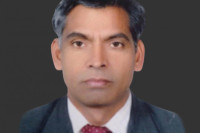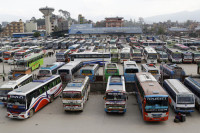National
More than one Nepalis die in Malaysia every day
At least 386 Nepalis died in Malaysia in 2016, according to official statistics, putting the toll twice as high as in Qatar even as the two countries employ a similar number of Nepali workers.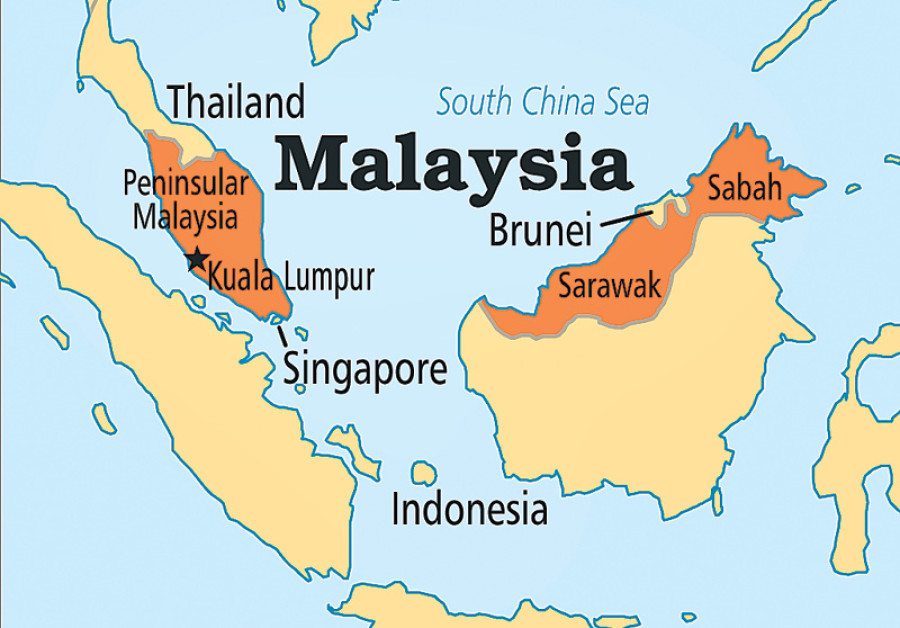
Roshan Sedhai
At least 386 Nepalis died in Malaysia in 2016, according to official statistics, putting the toll twice as high as in Qatar even as the two countries employ a similar number of Nepali workers.
Data acquired by the Post from Nepal’s mission in Malaysia show the fatalities, which account for more than one death per day, occurred from the beginning of January to December 27 last year.
The number is slightly less than that of Nepalis who died in Malaysia in the same period the preceding year when a total of 425 migrants had lost their lives.
The revelation is shocking as the concerned stakeholders were expecting a decrease in deaths due to a sharp fall in the number of new migrants going to Malaysia since the 2015 earthquake.
Postmortem reports attribute more than half the deaths to cardiac arrest and natural causes and more than a third of them to suicide and traffic and workplace accidents.
According to the report, around 20 percent of the deaths have been attributed to chronic conditions of tuberculosis, gastritis, pneumonia, renal failure and myocardial ischemia.
Rights groups, activists and doctors say there is enough room to doubt the credibility of the reports as many employers in cahoots with medical centres tend to cover up the actual cause of the death to avoid insurance claims and other obligations.
Angela Sherwood, a refugee and migrant rights researcher at Amnesty International, said the actual cause of death might never be known as there “has been a shocking failure by the Malaysia and Nepal’s authorities to investigate the high number of Nepali migrant worker deaths”.
“Proper autopsies have not been carried out, and their deaths have been evasively attributed to heart failure or ‘sudden unexpected death syndrome’. More research is needed to look into the poor work and safety conditions that may have contributed to these deaths, and the overlooked factors of stress, overwork, and dehydration,” Sherwood told the Post in an email interview.
Why are the numbers disturbing?
Lack of credible data makes it extremely hard to tell whether the death rate of Nepali migrants in Malaysia is lower than that of workers in Nepal as some experts claim, and even if the assertion is true, the sheer number of deaths is still disturbing for multiple reasons.
One, unlike those dying in Nepal, countries like Malaysia only hire migrants who are medically fit. Each worker going to Malaysia has to pass two rounds of medical test—first at home and then in the work destination—before they are employed.
The health check-up process is so sophisticated that one in ten workers are returned from Malaysia even before taking up jobs on medical grounds.
Two, Nepalis in Malaysia are dying at a far higher rate than their compatriots working in Qatar, a country that is in the spotlight for its inhumane treatment of Nepali workers, although the two countries employ a similar number of documented Nepali migrants. There were 411,364 documented Nepali migrants working in Malaysia until November last year, slightly higher than the number of Nepalis working in Qatar (380,000), according to the respective governments. The actual number of workers, however, could be higher as it does not include undocumented workers. A total 172 Nepalis died in Qatar in 2016, according to the Nepali embassy in Doha.
Three, many of these deaths were avoidable as a large number of cases have been attributed to traffic and workplace accidents and suicide and sudden cardiac arrest. Experts believe that a large number of deaths can be clearly linked with unsafe living and working conditions, lack of rest as well as poor pre-departure orientation at home.
Four, the death rate appears to be increasing even when there has been a drastic fall in the number of Nepalis taking new jobs in Malaysia and a marked rise in the number of workers returning home. The data shows reverse migration trend of Nepalis working in Malaysia since 2015. More than 250,000 Nepalis are believed to have returned from Malaysia since the Gorkha Earthquake, while hardly 80,000 fresh workers took up new jobs in the East Asian country.
A tactic to avoid insurance claims and responsibilities
Companies are not required to pay insurance claims and compensation to workers dying of natural causes, traffic accident or suicide. Malaysia, like the Gulf countries, does not provide full insurance cover to foreign workers. Though they are required to provide workplace insurance, many smaller companies get off the hook.
Whatever the cause, experts say that a majority of deaths have direct links to squalid living and working conditions, stress, work pressure and family pressure and lack of rest. Moreover, an only small section of the migrants is entitled to proper health care.
Senior cardiologist Dr Prakash Raj Regmi, who deals with migrant workers’ health issues, said there is the clear relationship between the living and working conditions and the deaths.
“There is a need to promote a healthy lifestyle and ensure better work environment, food, adequate rest and regular health check-ups,” said Regmi, citing his research in an interview with the Post last year.
Workplace safety of migrants remains a big challenge in Malaysia, according to rights groups like Amnesty International and Human Rights Watch.
Talking to reporters after his Malaysia visit in 2015, UCPN (Maoist Centre) Vice Chairman and former foreign minister Narayan Kaji Shrestha had bluntly said that Nepali workers received “animal-like treatment” in the South East Asia’s third largest economy. Shrestha had also urged the government to stop sending Nepali workers there.
Problem here, problem there
Even as the Nepali authorities accuse the governments of the labour receiving countries for being indifferent to the plight of migrants and denying them rights, the workers face similar apathy at home. In fact, the root of many of the problems lies here.
More than 75 percent leave Kathmandu without obtaining job-related training, according to the Department of Foreign Employment. Very few are properly orientated on work nature, environment, the culture of the work destinations. Workers are often kept in dark about the real wages and facilities through fake contract letters.
In the absence of proper laws and regulations to reign in recruiting agencies, prospective migrants are often duped or forced to pay exorbitant recruitment charges.
“Workers are often forced into these circumstances after accumulating steep recruitment and other migration-related debts, which they try to overcome by working overtime, suffering stress and a toll on their bodies. The physical toll exacted on some left them unable to return to work,” said Sherwood.
2016 386
2015 425
2014 361




 11.5°C Kathmandu
11.5°C Kathmandu

